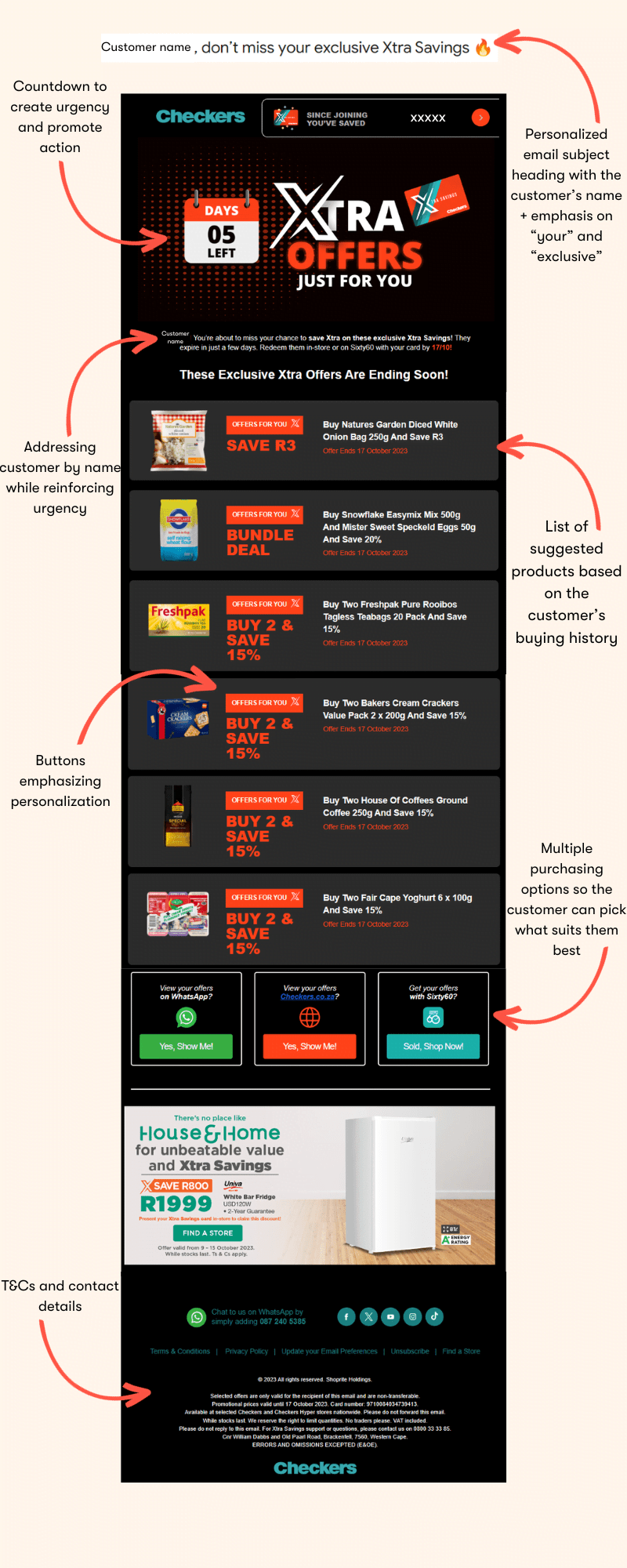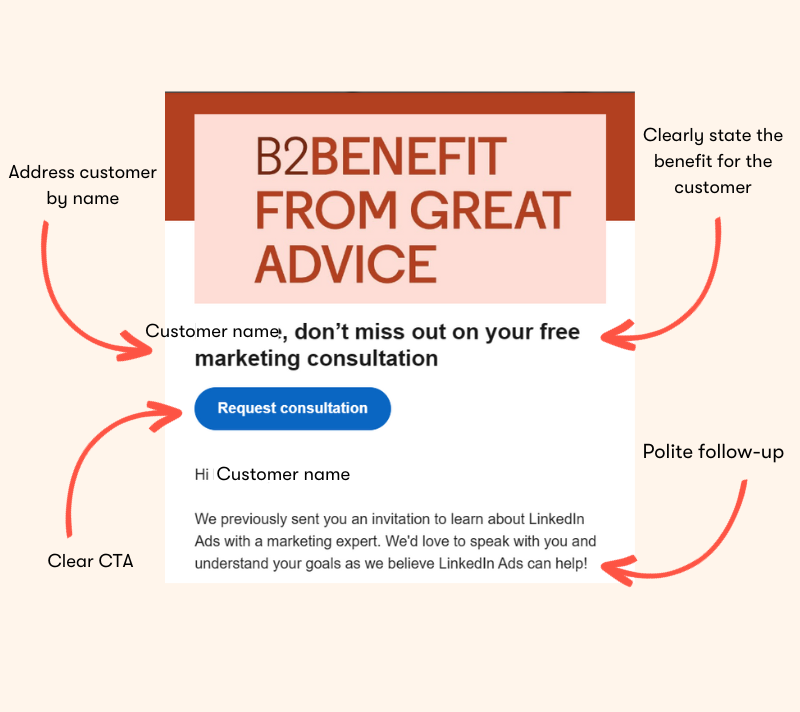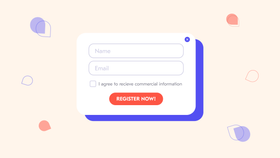What Is the Future of Email Marketing? How AI Has Changed the Game
From data privacy laws to the role of AI, we cover it all.
Updated December 7, 2023.

Digital marketing is constantly changing, and email marketing, a time-tested strategy, is no exception. Of the many key trends shaping the future of email marketing, Artificial Intelligence (AI) is perhaps the most intriguing. Already the adoption of AI in marketing activities is expected to grow exponentially from $27.4 billion in 2023 to $107.4 billion in 2028. As for email marketing specifically, more than 50% of email marketers have already indicated that they think AI has improved their marketing activities, rising above traditional methods.
But why are email marketers saying this? Below, we explore what AI brings to the email marketing table, its challenges and opportunities, plus how it'll impact the future of marketing.
Meet the expert
Andrew Royal, a seasoned marketing executive with nearly a decade of experience, is the founder of RevOps. He specializes in helping SMBs optimize revenue operations through data-driven strategies.
Setting the stage: From inbox clutter to opened emails
The competition for inbox attention has never been fiercer. There are an estimated 347.3 billion emails sent and received globally per day. That's expected to increase to 392.5 billion by 2025. Plus, while email open rate benchmarks differ according to industries, the average open rate is only 21.5%.
So, how do you make sure your email gets opened?
Enter AI-generated content. AI is set to revolutionize email marketing by helping craft compelling subject lines and content. AI can even assist with image selection and collaboration, making it easier for teams to work together efficiently. Tools like Figma and Canva have further democratized design, allowing marketers to create visually appealing emails effortlessly.
» Boost your subscriber engagement with these powerful tips.
Maximizing email marketing with AI
AI's potential in email marketing is vast, but it's essential to use it wisely. AI won't replace human marketers just yet, but it can empower those who harness its capabilities effectively. AI-generated content, images, videos, and even voices are becoming more accessible. Here are some practical ways you can harness the power of AI to enhance your email campaigns.
Personalization beyond first names
Currently, AI can analyze user behavior, preferences, and past interactions to dynamically tailor email content. For example, it can recommend products based on browsing history or suggest relevant blog articles to your customers. By emailing content that's more likely to resonate with each recipient, you increase the chances of engagement and conversion.
Consider how this grocer used AI to create a personalized email with tailored product recommendations:
- Personalized email subheading
- Countdown timer to create urgency
- List of personalized product recommendations
- Choice of purchasing method
AI-generated content
While it may not be ready to write an entire email from scratch, AI can certainly assist in drafting email content. It can analyze and process data from various sources, including customer behavior, website interactions, and social media trends, to generate content ideas that are likely to resonate with your audience. For example, if AI detects a spike in interest around a specific topic, it can suggest creating content related to that trend.
Plus, AI can analyze your audience's preferences and historical click-through rates to generate attention-grabbing headlines with a higher chance of enticing people to open the email.
» Use these ChatGPT prompts to enhance your email campaigns
Customer lifecycle predictions
AI can predict where a customer is in their journey and send emails accordingly. For instance, it can identify new customers, loyal customers, or those showing signs of churn by analyzing patterns and user behaviors. That data can then be used to trigger automated retention-focused emails that include personalized offers, loyalty rewards, or simply a friendly check-in to address concerns.
Consider this snapshot from an email by LinkedIn to remind a customer of their free marketing consultation:
Chatbots and virtual assistants
When a customer or subscriber responds to an email, AI-powered chatbots can instantly acknowledge the message and provide relevant information or assistance. AI chatbots also excel at handling frequently asked questions, freeing up human agents to focus on more complex issues.
With all that said, a human touch remains crucial. AI-generated content can sometimes come across as generic or mechanical. So, it's essential to use AI as a starting point and then add your personal touch to create engaging and authentic emails that'll boost your ROI.
Pro tip
Protect your property information: While AI is a powerful tool, it comes with a caveat—never include proprietary business information in AI prompts. Once it enters the AI system, it becomes part of the public domain. However, companies like Google are exploring ways to allow businesses to use AI with their proprietary data while maintaining security.
The privacy laws reshaping email marketing
AI and privacy has become a hot-button issue in recent years. While AI smoothes out many processes, it does raise questions about privacy, particularly how AI manages customer data. The main concern revolves around permission:
- Has the customer willingly shared their data with you?
- Does the customer fully understand how you use their data and are they happy with it?
- Is the customer reassured by how you protect their data?
In response to these questions, there's legislation you must be compliant with. The General Data Protection Regulation (GDPR) set the tone by requiring explicit consent and empowering users to request data deletion. Now, Canada is following suit with its own privacy law, CASL, mirroring GDPR's principles. In the United States, the email marketing scene differs slightly, but change is on the horizon. Marketers must prepare for stricter privacy regulations, emphasizing the importance of obtaining explicit consent and respecting user preferences.
But there is an upside. A more engaged subscriber base. When users provide explicit consent, they're signaling a genuine interest in your content, resulting in a more responsive audience. Plus, popular email service providers like MailChimp and ActiveCampaign offer GDPR compliance features to help you navigate these new regulations.
» Want to get more out of MailChimp? Try these A/B testing strategies.
The uncertain future of AI in marketing
The hype around AI is undeniable, but is it sustainable? Some marketers wonder if AI will follow the same trajectory as previous industry buzzwords like the Metaverse or NFTs, which saw initial excitement but then faded.
Truth is, AI is probably here to stay, and marketers must remain adaptable. New AI products and tools emerge regularly, so staying informed and flexible is key.
Remember that AI is not here to replace tools such as social media platforms—it's there to optimize your workflows. And don't feel obligated to change your entire marketing strategy to accommodate AI if your current approach works. You're likely to get more out of AI when you use it as another tool in your tool belt.
» Looking for marketing inspiration? Give these expert-approved books a try.
What lies beyond: AI's bright horizons
Email marketing remains a potent tool, and with the right strategies, it will continue to deliver results in the years to come. One of the best ways to navigate the evolving landscape of email marketing is to leverage AI wisely, remain adaptable, and stay up to date with changes, but don't feel obligated to use new AI tools if you don't need to.
In fact, you can leverage AI without using it by collaborating with marketing experts who have mastered the best AI tools around. Mayple uses an AI-powered algorithm to match brands with marketing partners that are the right fit and understand your brand's needs.
Ready to scale your brand?








